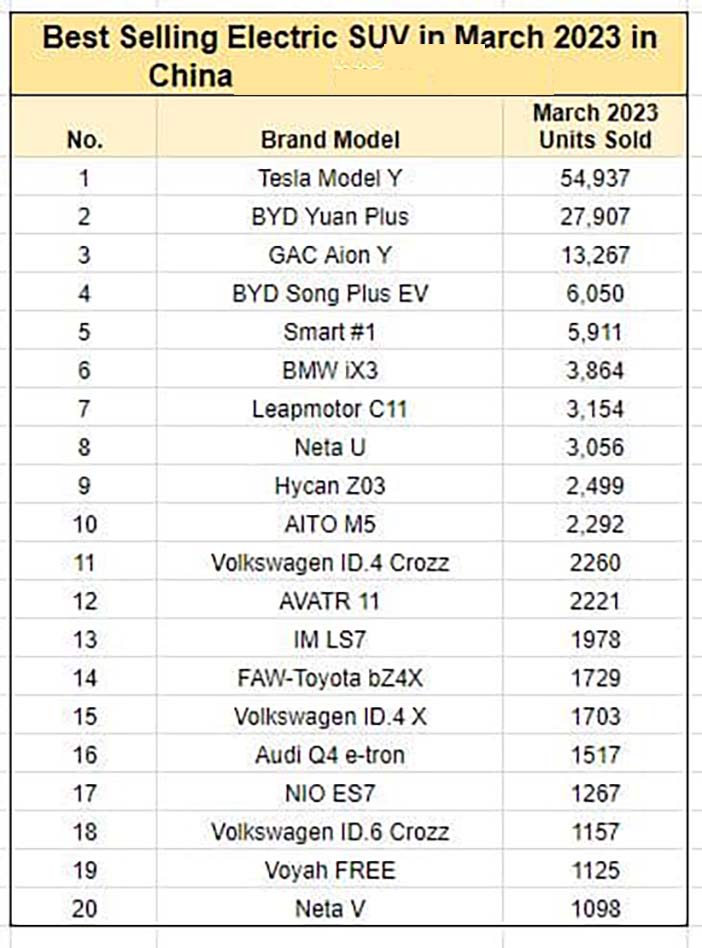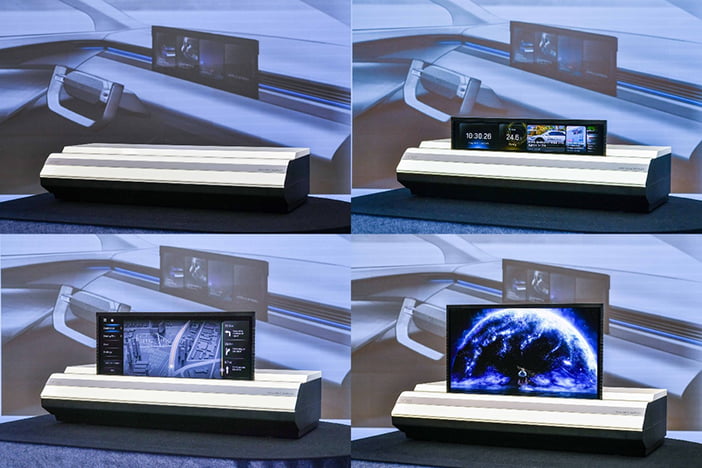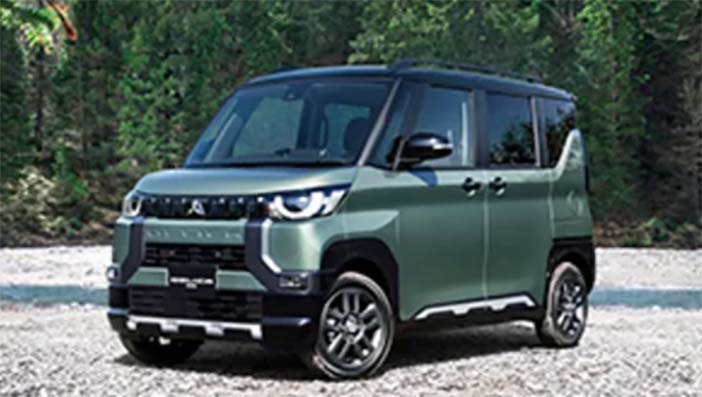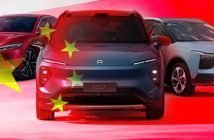+++ Chinese BATTERY maker CATL has announced that Chery Auto would be the first company to use mass-produced sodium-ion batteries in their EVs. At the same time, but hundreds of kilometers from CATL’s headquarters in Ningde, Chery Auto held a press conference where they launched a new iCar brand and announced that CATL’s first sodium-ion battery would power their EV models. CATL unveiled its sodium-ion batteries in July 2021 with an energy density 160Wh/kg, slightly less than LFP batteries, but with advantages, such as cheaper manufacturing cost, better performance in low temperatures and safer. CATL also announced that next-generation sodium-ion batteries would exceed an energy density of 200 Wh/kg and will go into mass production in 2023. Today it seems logical that sodium-in batteries will be used in electric vehicles. It wasn’t so obvious back in 2021. Even CATL at that time expected that the sodium-ion batteries would be used mainly in energy storage and 2-wheeled scooters. Some analysts in China even speculated that the CATL sodium-ion battery project is only intended to put pressure on lithium suppliers. But the development of sodium-ion batteries went better than expected; lithium prices kept rising in 2022, and it became apparent that using sodium-ion in EVs was inevitable. CATL confirmed that in November 2022, as they announced that their sodium-ion batteries are expected to power electric vehicles. Since the launch event in 2021, CATL didn’t announce who will be their customer for sodium-ion batteries and didn’t share any information about the success of moving from prototype to mass production. Today, almost 2 years after the launch, that changes. CATL is not the only one pushing the development of sodium-ion batteries. In December last year, BYD announced they would start mass production in 2023 and launch a small electric hatchback powered by a sodium-ion pack. This car will probably be BYD Seagull which is set to debut next week at Shanghai Auto Show. The Seagull will range from 305 km and start at 80.000 yuan ($11.600) and offer both LFP and sodium-ion variants. In February, Chinese battery maker Hina won the day when they launched the first EV with a sodium-ion battery inside. The car powered by Hina battery was Sehol E10X, made by Volkswagen-JAC Chinese joint venture. The sodium pack had a capacity of 25 kWh, an energy density of 120 Wh/kg and a range of 250 km. The battery wasn’t mass-produced, but rather a prototype for testing purposes. CATL is the world’s biggest battery maker. It had a 37% global market share in 2022, followed by LG with 13,6% and BYD also with 13,6%, according to SNE research. Almost all relevant EV makers are CATL’s customers, including Tesla, Volkswagen, Nissan, Nio or Tata. And did you hear about that new Ford battery plant in the US? Well, it also has CATL inside. CATL will hold a Zero carbon strategy event on April 18 at Shanghai Auto Show, where they are expected to release more information about their mass-produced sodium-ion batteries. +++
+++ BYD has signed an agreement with Shell to open its 300.000 EV chargers in Europe for BYD customers. The companies will also issue 100.000 Shell Recharge platinum membership cards, cobranded with Shell & BYD logos. BYD announced that the Shell Platinum cards for BYD owners in Europe would feature some exclusive benefits but doesn’t provide more information on it, only that charging will be discounted and it will be functional on all 300.000 European Shell EV charging spots. “We are delighted to collaborate with Shell in launching exclusive membership benefits for BYD’s European customers, aimed at providing convenient charging experiences. BYD owners will now have access to more than 300,000 Shell charging terminals across Europe at preferential prices”, commented Shu Youxing, general manager of BYD European Sales Division. István Kapitány, Shell’s vice president, expressed his pleasure in assisting BYD’s expansion across multiple countries, including China, India and Europe. “Through this partnership in the European market, Shell aspires to leverage its expansive charging network to provide BYD owners with an improved EV charging experience”. In March last year, BYD and Shell signed a global strategic cooperation to ‘jointly accelerate electric vehicle transformation’ and enhance the charging experience of BYD customers. BYD and Shell established a joint venture in China that operates over 10.000 EV chargers. From other Chinese EV makers, Nio signed a similar agreement with Shell in 2021 and deepened the cooperation in August 2022 when both companies announced they would build charging infrastructure together. However, the extent of the BYD-Shell agreement looks even more profound than what Shell signed previously with other car makers. BYD plans to build a plant in Europe, and the first car should roll off the production line in 2025. Meanwhile, BYD expanded to the United Kingdom with its Atto 3, which started deliveries in March, and sells Atto 3, Han and Tang in Germany and the Netherlands. +++
+++ In CHINA , the Tesla Model Y was the top bestselling pure electric SUV, according to the latest data from the Chinese Passenger Car Association (CPCA). A total of 70 models were on the retail sales rankings of pure electric SUV models in March. Tesla Model Y exploded in sales, breaking the 50.000 mark, way ahead of the other vehicles. Other vehicles that made it to the top 10 list were the BYD Yuan Plus, the GAC Aion Y, the BYD Song Plus EV, the BMW iX3, the Leapmotor C11, the Neta U, the Hycan Z03 and then AITO M5. +++

+++ HYUNDAI MOBIS said Monday it has developed a rollable display for cars; the first of its kind globally. The 30 inch display can be rolled up and down depending on the mode the driver chooses. The automotive parts unit affiliated with Hyundai Motor Group said it aims to secure orders from luxury carmakers globally.

+++ The HYUNDAI MOTOR GROUP said it will shell out 24 trillion won ($18.1 billion) to boost its electric vehicle production at home by 2030, aiming to become 1 of the top 3 carmakers globally in terms of EV sales. As part of the carmaker’s ambitious EV push, Kia broke ground to build the nation’s first EV-only production plant later in the day. “Kia’s EV plant is the first domestic production facility the Hyundai Motor Group will be building in 29 years. The government as a team player will play a role in helping Hyundai lead innovation in the global mobility industry”, president Yoon Suk Yeol said in his congratulatory remarks during the ceremony held in Hwaseong, Gyeonggi Province. The event was also attended by Hyundai Motor Group executive chairman Chung Euisun, Kia CEO Song Ho-seong and some 200 company and government officials. The carmaker’s 1 trillion won funding for Kia’s EV plant is the first domestic investment made under a new government initiative that aims to nurture Korea as a top-tier player in the field of future mobility, according to the presidential office. Under the initiative, the local automotive industry plans to expand production capacity by fivefold and cement its leading position as a global EV production and export base. The Hyundai Motor Group alone seeks to expand its EV production capacity to 1.51 million units locally and 3.64 million units overseas by 2030. It plans to expand its EV lineup to a total of 31 models, including Kia’s EV9 set for launch this year and Hyundai’s Ioniq 7 to be rolled out in 2024. Kia’s EV plant will be at the forefront of carrying out Hyundai’s EV business strategy. It will start operation in 2025 with an annual production capacity of up to 150.000 units. The manufacturing facility aims to produce the first Purpose Built Vehicle model, a customized autonomous driving car, called SW in 2025. Based on the exclusive platform for electrified PBVs, the mid-sized vehicle with a roomy interior will offer services such as ordering delivery, car-hailing and other B2B transactions. Kia looks to add PBV lineups of large-sized EVs that can be used as fresh grocery delivery vans or portable offices and stores. It also plans to add small PBVs and self-driving robotaxis among its lineups. The plant will adopt eco-friendly features with 20 percent less carbon emissions compared to existing factories, as well as advanced automation technology based on E-Forest, the group’s smart factory brand powered by artificial intelligence and big data. For customized car production, it plans to install the “Cell” option in the conveyer system that can mass-produce a wide range of vehicles at the same time. Hyundai will also build an EV manufacturing plant and transform existing factories into exclusive production lines for electric cars. In particular, its EV plant looks to use Korea-made industrial robots, which will ramp up the local production rate of factory equipment to 99 percent and in turn give profits to local IT companies. In order to improve its EV performance, the carmaker plans to develop its next-generation EV platform slated for launch in 2025. Under the integrated modular architecture that allows more efficient car production, it will make platforms for separate car segments. Also on the list of improvements are advancing the power electric system for batteries and motors and extending single-charge driving range. For customer convenience, the carmaker vowed to enhance EV charging services and set up an ultra-fast charging infrastructure across the country. By the first half of this year, it will establish a standardized EV charging device and service quality verification center to provide stable chargers and swiftly exchange broken ones. It also plans to set up 3.000 high-speed chargers in charging stations by 2025. +++
+++ New car sales in INDIA in fiscal 2022 ended March jumped 28.2 percent from a year ago to 4.85 million units, surpassing annual sales in the Japanese market, industry data showed. The figure topped 4.39 million new vehicles sold in Japan, as the emerging market continues to expand on the back of high economic growth and an increasing population. The data came after India became the world’s third largest auto market after China and the United States in 2022, overtaking Japan in new car sales on a calendar basis for the first time. Of the 4.85 million units sold in fiscal 2022, passenger cars accounted for a record 3.89 million, up 26.7 percent from the previous year. Commercial vehicle sales stood at 962.468 units, up 34.3 percent, according to the Society of Indian Automobile Manufacturers. The sales were boosted as a drop in coronavirus infections lifted personal consumption to pre-pandemic levels. By passenger car brand, the country’s top carmaker, Maruti Suzuki sold 1.61 million cars, accounting for 40 percent of the total. Hyundai was second with 567.546 units, followed by Tata Motors with 544,391 cars. Among other Japanese manufacturers, Toyota delivered 173,245 units, while Honda and sold 91.418 and 33.611 cars, respectively. +++
+++ MITSUBISHI will start sales of the new Delica Mini super height-wagon kei-car at sales affiliates throughout Japan on May 25. The new Delica Mini is priced from 1.804.000 to 2.238.500 yen (10 percent consumption tax included). Based on the concept of being a reliable and active super height-wagon kei-car, the new Delica Mini takes its name from the Delica minivan combining spacious interior room with powerful driving. The Delica Mini features an SUV-like styling that gives the impression of powerful driving like the Delica, a functional cabin convenient for both outdoor recreation and everyday use, spacious interior room allowing for comfort even in the rear seats, secure and pleasant road performance even when driving on unpaved surfaces such as gravel roads, Mi-Pilot driver assistance technology and active safety technology. It offers an enjoyable time with family and friends in situations ranging from daily life to leisure use. Since the pre-orders for the new Delica Mini began on January 13, the number of orders has reached about 9.000 units as of April 5. As for order trends, about 60 percent of all customers selected 4WD models and the fully equipped Premium models accounted for over 80 percent of orders. The vehicle’s friendly, Delica-like front face, as well as the large-diameter, 15 inch tires and specially tuned shock absorbers, both exclusive equipment for the 4WD model, have gained a favorable reception. A wide range of orders have been received, mainly from families with children and customers looking to enjoy outdoor activities. +++



